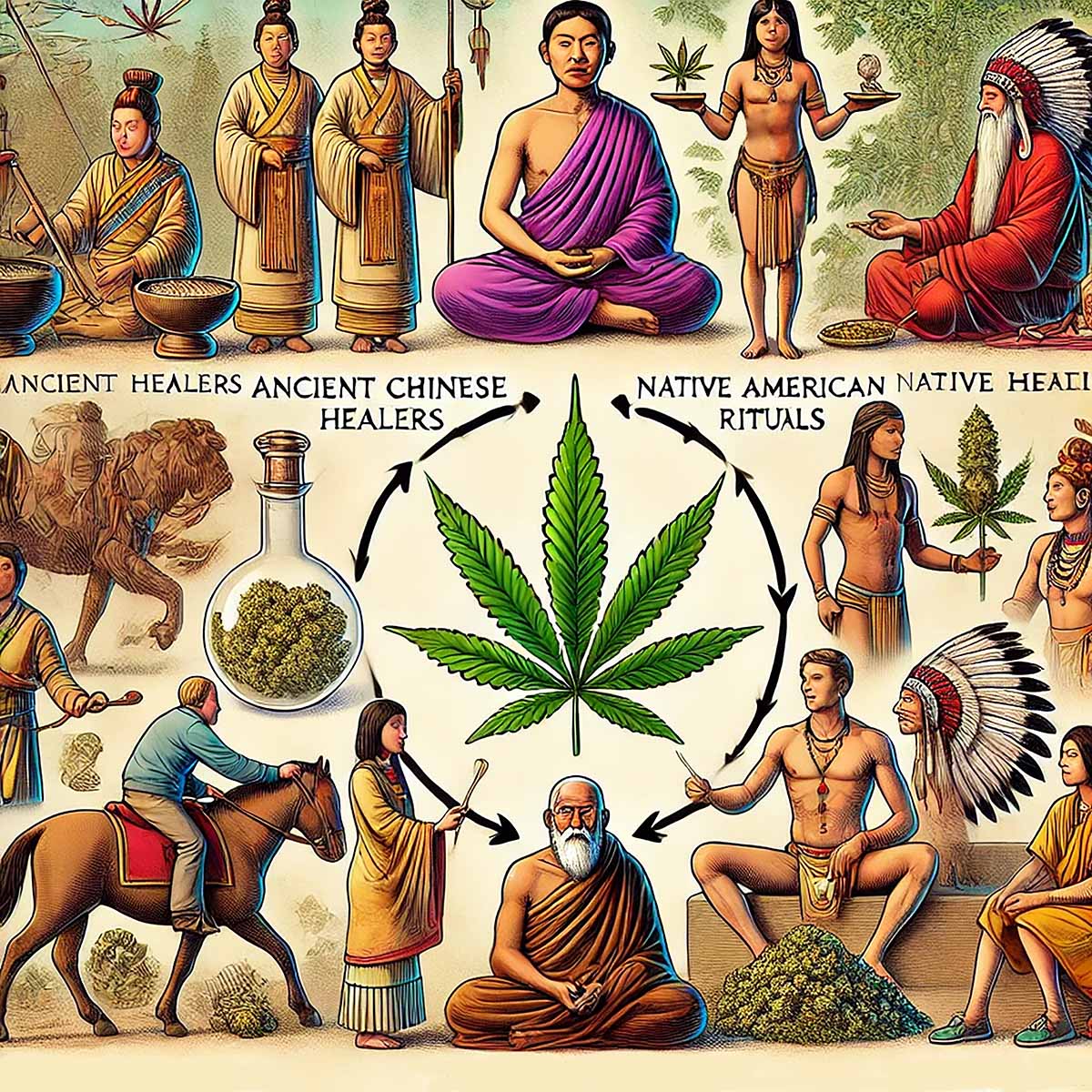Cannabis, often heralded as a modern marvel for its medicinal and recreational applications, boasts a history that stretches back thousands of years. This ancient plant has woven itself into the fabric of human culture and civilization, serving a myriad of purposes from spiritual rituals to practical applications. In this blog, we’ll explore the fascinating historical use of cannabis, tracing its roots through ancient civilizations and understanding its enduring legacy.
Early Beginnings in Central Asia: The history of cannabis is believed to begin in Central Asia, where it is thought to have originated. Archaeological evidence suggests that cannabis was used by ancient civilizations as far back as 10,000 years ago. In these early societies, cannabis seeds were consumed as a food source, and the plant fibers were used to make textiles and ropes.
Cannabis in Ancient China: One of the earliest documented uses of cannabis comes from ancient China. The legendary Emperor Shen Nong, known as the father of Chinese medicine, reportedly included cannabis in his pharmacopeia around 2700 BCE. The plant was used for its medicinal properties to treat various ailments, including rheumatism, malaria, and digestive disorders. The Chinese also utilized hemp fibers to produce clothing, paper, and other essential items.
Cannabis in India: Cannabis holds a significant place in Indian culture and has been used for thousands of years in religious and medicinal contexts. The sacred text Atharva Veda, dating back to around 2000 BCE, mentions cannabis as one of the five sacred plants. It was believed to be a source of happiness, joy, and liberation. In Ayurveda, the traditional system of medicine, cannabis was used for its therapeutic properties to treat a range of conditions, including pain, anxiety, and gastrointestinal issues.
Cannabis in the Middle East: The use of cannabis spread to the Middle East, where it became an integral part of various cultures. In ancient Persia, it was used in religious ceremonies and was considered a sacred plant. The Assyrians referred to cannabis as “Qunnabu” and used it in incense and rituals. The Greek historian Herodotus noted the use of cannabis by the Scythians, a nomadic warrior tribe, who inhaled its smoke during ceremonial practices around 500 BCE.
Cannabis in Ancient Egypt: In ancient Egypt, cannabis was used for medicinal purposes and as part of religious rituals. The Ebers Papyrus, an ancient Egyptian medical text dating back to 1550 BCE, mentions the use of cannabis for treating inflammation and other ailments. Cannabis was also used in mummification processes due to its preservative properties.
Cannabis in Ancient Greece and Rome: The ancient Greeks and Romans were familiar with cannabis and its various applications. The Greek physician Dioscorides documented the use of cannabis in his medical text “De Materia Medica” around 70 CE, noting its effectiveness in treating earache and other conditions. The Romans used cannabis fibers to produce textiles and ropes, and it was a common crop in their agricultural practices.
Cannabis in Africa: Cannabis made its way to Africa, where it was embraced by various indigenous cultures. It was used for medicinal purposes, in spiritual rituals, and as a source of fiber for textiles. In some African societies, cannabis played a role in traditional healing practices and was believed to have protective properties against evil spirits.
Cannabis in the Americas: The arrival of cannabis in the Americas is believed to have occurred through the transatlantic slave trade and the migration of peoples from Africa and Europe. Indigenous cultures in South America, such as the Mapuche in Chile, used cannabis for its medicinal and psychoactive properties. In North America, hemp cultivation was encouraged by early European settlers for its industrial uses.
The historical use of cannabis spans across continents and cultures, reflecting its versatility and significance throughout human history. From ancient China to Egypt, India, and beyond, cannabis has served as a valuable resource for medicine, spirituality, and industry. Understanding the ancient origins of cannabis provides a deeper appreciation for its enduring legacy and its continued relevance in modern times. As we rediscover the benefits and applications of this ancient plant, we honor the rich history that has shaped its journey through the ages.



